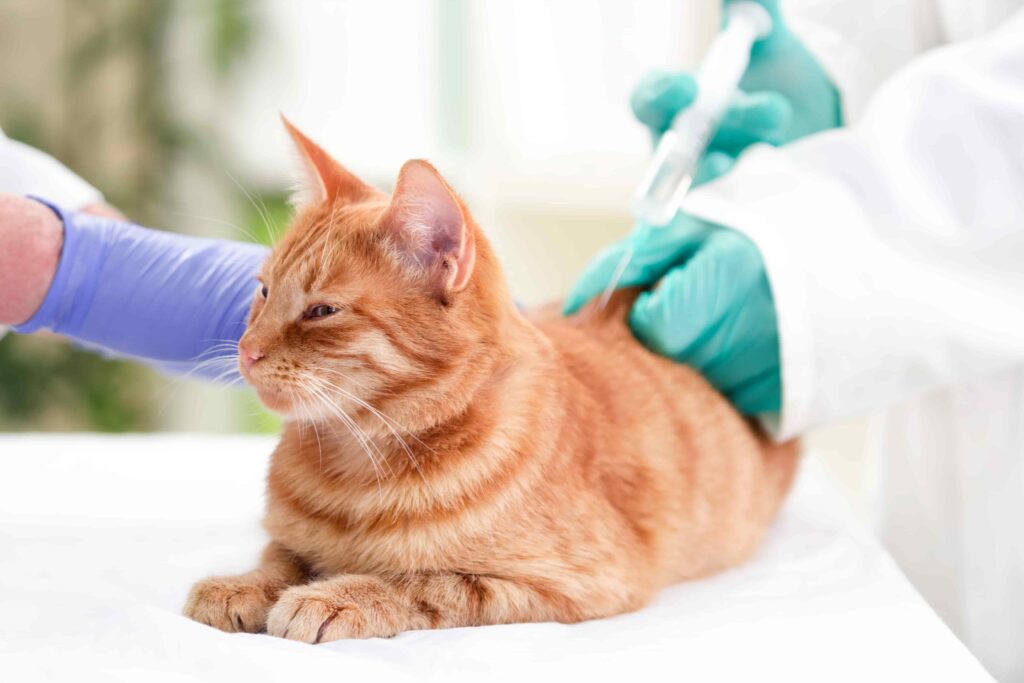In people, prednisone or prednisolone may be prescribed as an immunosuppressant medicine and used for issues like asthma. We know that dogs can also suffer with similar conditions and conditions like BOAS in flat-faced (brachycephalic) breeds. Are these medications used for treating these conditions in our pets too? Prednisone and prednisolone are prescription medicines so should only ever be given under the direction of a vet. Keep reading to find out more about prednisone for dogs, including whether it’s considered a helpful medication.
What is prednisone for dogs?
Prednisone for dogs is used to treat a range of medical conditions. However, prednisone is what’s known as a precursor for a medication called prednisolone – i.e., prednisone is metabolised in the body into prednisolone, and it’s in the form of prednisolone that the medication is most commonly prescribed.
Like humans, this can be used as an immunosuppressant or an anti-inflammatory medicine. It is a synthetic steroid and can be administered orally, by injection or topically.

Prednisone for dogs – is it safe?
Prednisone should always be prescribed by a vet. Your vet will decide if it is a suitable medication depending on many factors including the nature of your pet’s illness and your pet’s general health.
It can’t be used for dogs who are allergic to it. In addition, at higher doses it can suppress the immune system so is used with caution (or avoided completely) in dogs with viral infections, tuberculosis, or systemic fungal infections.
It is not usually prescribed for dogs with Cushing’s disease, because due to their medical condition, they have high levels of naturally occurring steroids already.
Typically, pets are put on a short-term dose of this medication but if the drug is given long-term (longer than four months for example), your vet will want to monitor your pet particularly closely. Always consult your vet if you’re concerned.
If your vet advises stopping prednisone or prednisolone, they will tell you how to wean your pet off the medication gradually. This is very important because stopping these drugs abruptly, can have serious consequences.
What does prednisone for dogs treat?
So, now we know prednisone is usually safe for dogs but what does it actually treat? It is sometimes used to help treat Addison’s disease. We also mentioned it has both immunosuppressant and anti-inflammatory properties. Here are some specific issues that prednisone is sometimes used to treat:
- Allergic reactions.
- Inflammatory bowel disease.
- Some forms of dog cancer.
- Itching.
- Hives.
- Skin diseases linked with inflammation.
- Arthritis and orthopaedic diseases.
- Nervous system disorders.
- Asthma.
- Autoimmune diseases.
What is the prednisone dosage for dogs?
The prednisone dosage for dogs depends on what treatment your pooch needs. In general, a lower dose will be used for treating allergies and inflammation than for treating autoimmune diseases or other conditions that require immunosuppression. Your vet will calculate how much your pooch actually needs and it’s important to stick to these instructions.
What are the side effects of prednisone in dogs?
Like any medication, there are some possible side effects of prednisone in dogs. As prednisone is a steroid medication, it’s important to monitor your dog and attend regular vet checks – especially if they’re on the drug for a long period of time. If you are concerned about any of these possible side effects, make sure to consult your vet as they’ll be happy to talk you through it.
- Increased thirst and appetite.
- Frequent urination.
- Development or worsening of infections (especially bacterial skin infections).
- Vomiting or nausea.
- Panting.
- Weight gain.
- Lethargy.
- Diarrhoea.
What are the effects of too much prednisone for dogs?
As we mentioned, your vet will need to monitor your dog if they’re on prednisone for a long period of time. If your dog is experiencing side effects your vet may reduce the dose of prednisone that your pooch is on or wean your dog off the medication completely. This will depend on lots of things including the reason your pet was prescribed prednisone and the severity of the side effects.



